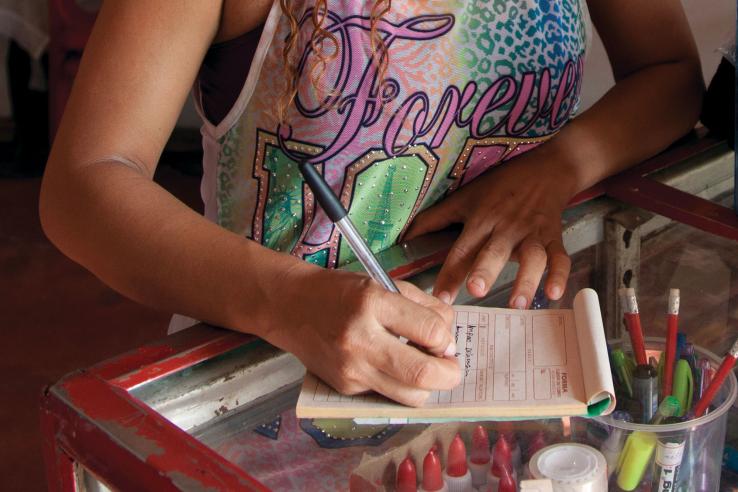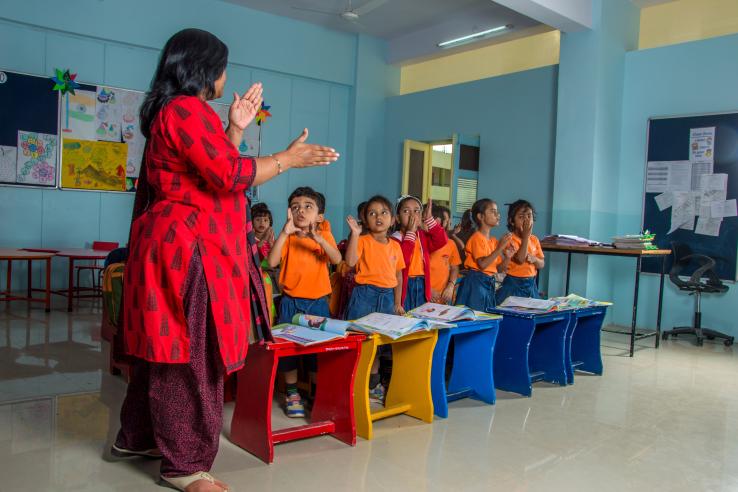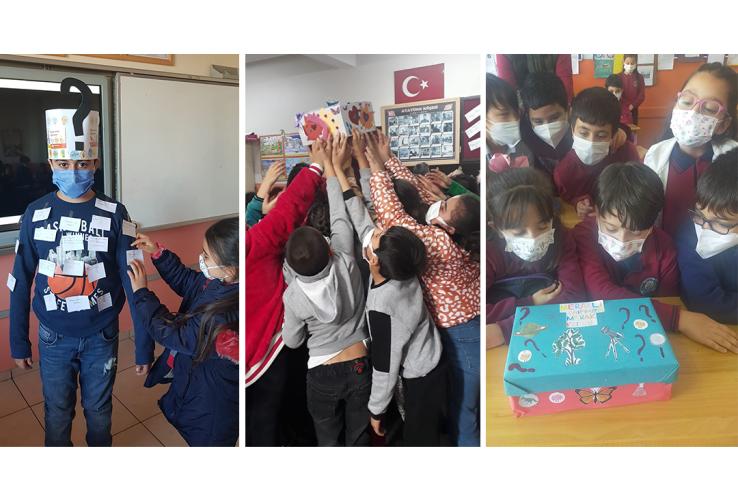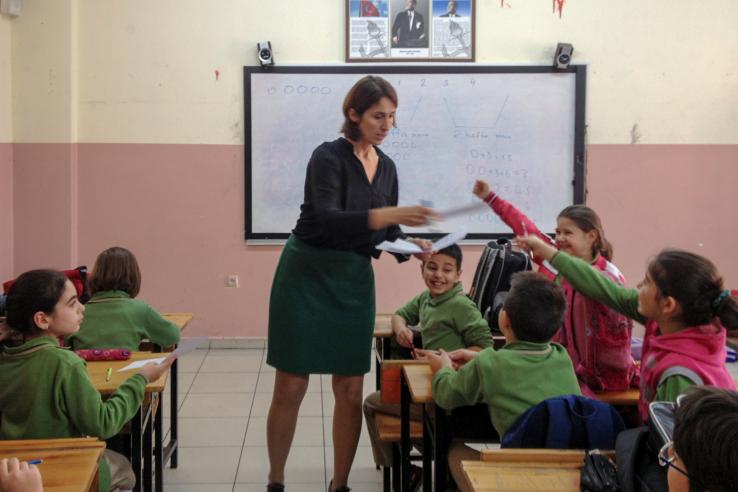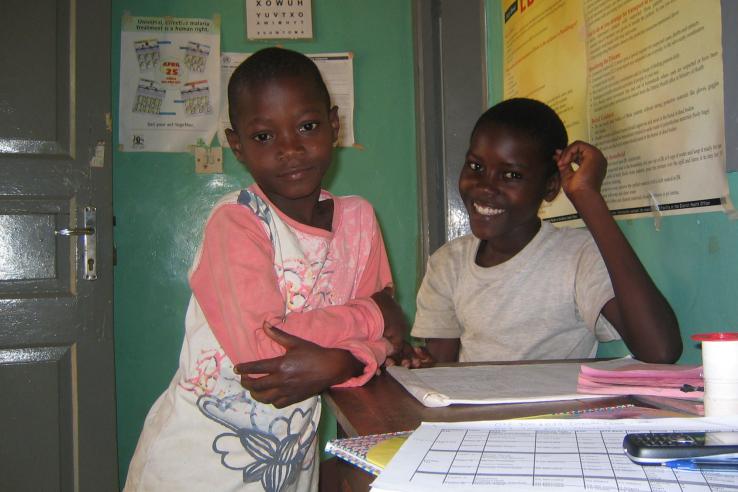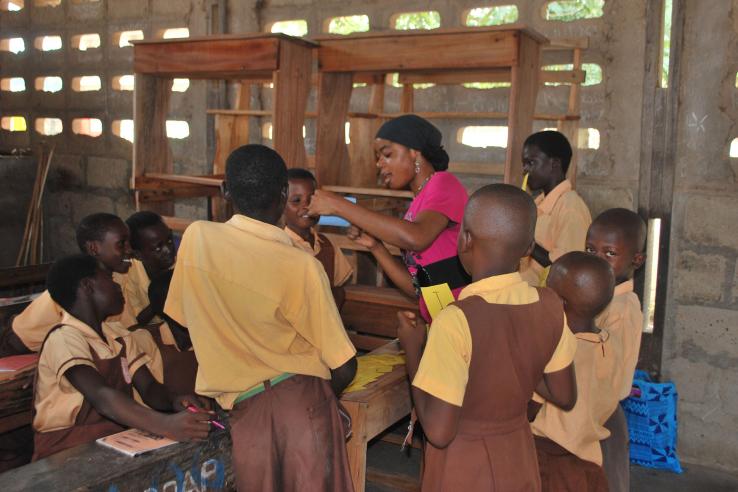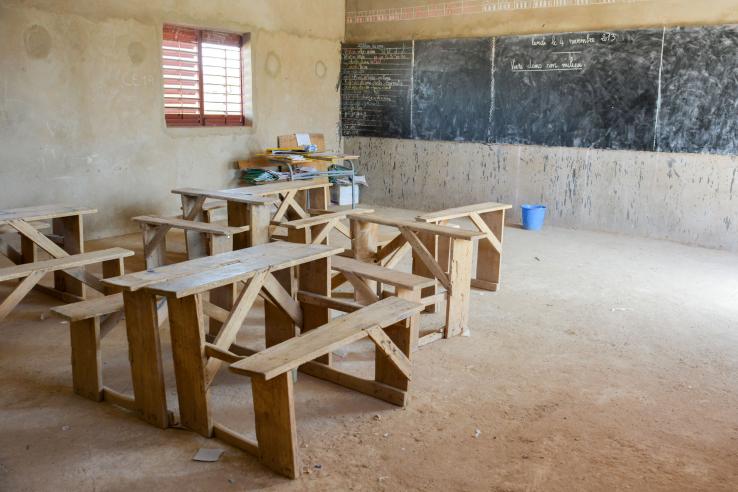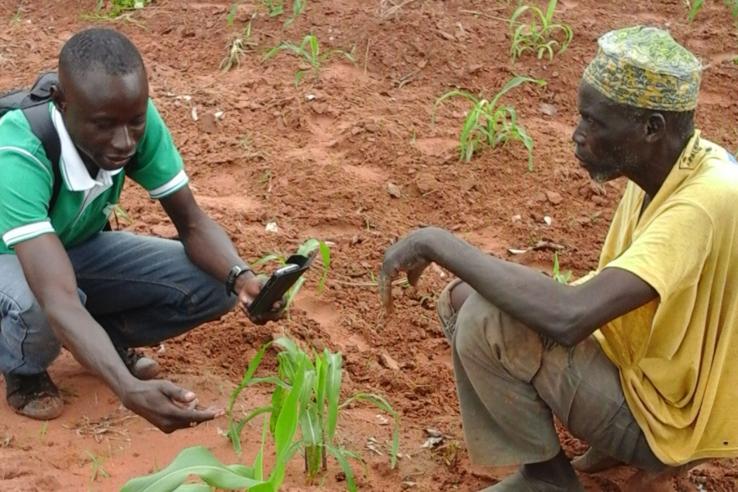Displaying 556 - 570 of 1291
Evaluation
The Value Added Tax (VAT) system, which generates a paper trail on transactions between firms, facilitated tax enforcement by spreading the impact of enforcement measures up the production chain in a study with over 400,000 firms in Chile.
Evaluation
Researchers evaluated the impact of a low-cost computer-based intervention providing information about the brain’s potential to change and grow on students’ beliefs in their abilities to learn and their subsequent effort in school. Results showed that providing this information improved students’ perseverance and academic performance, driven largely by impacts among the lowest achieving students.
Evaluation
Researchers conducted a randomized evaluation to test the impact of the combination of an in-school learning program with an out-of-school learning program on primary school math and reading levels. The combination of the two programs led to a significant increase in children's test scores in both math and language.
Evaluation
In Turkey, researchers evaluated the impact of a new pedagogical approach aimed at cultivating primary school students’ curiosity, particularly in science, to improve learning outcomes. Students whose teachers adopted the approach displayed greater curiosity, ability to retain knowledge, and science test scores, with effects persisting into middle school years.
Evaluation
Researchers partnered with the Munich Opera House to conduct a randomized evaluation measuring the impact of a large-scale mail fundraising scheme on the frequency and amount of donations. While neither the presence of a lead donor nor differences in matching schemes affected the response rate to the mailer, having a lead donor nearly doubled the average amount donated.
Evaluation
Researchers tested the independent impact of two channels, social learning (when someone purchases an asset after a peer expresses a desire to purchase the same asset) and social utility (when someone feels he can gain more from an asset because his peer owns it), on financial decisions in Brazil. Both social learning and social utility had significant effects on decisions to invest in a newly designed real estate asset.
Evaluation
Researchers introduced an educational program focused on teaching patience to evaluate the impact on students’ decision-making and willingness to wait for a future reward over the present. Students assigned to the program demonstrated more patient decision-making, which persisted almost three years after the program. Students were also less likely to receive low behavior grades.
Evaluation
Researchers worked with public elementary schools in Istanbul to measure the effects of a “grit curriculum” on fourth-grade students’ perseverance, competitiveness, and test scores. Students who were exposed to the grit curriculum in 2013 earned higher scores on math exams, and the program also reduced the gender gap in competitiveness by encouraging girls who were likely to succeed to compete.
Evaluation
In Mexico, researchers evaluated a math tutoring intervention and a cognitive behavioral therapy-based (CBT) program that aimed to encourage students to slow their decision-making processes and to improve academic readiness for secondary school students at risk of dropping out. The study found mixed effects on socio-emotional skills among students, and no effect on math test scores, though take-up was limited.
Evaluation
In Uganda, researchers tested whether a school-based savings program reduced dropout rates by enabling students and their families to save for school-related expenses. A version of the program that labeled savings for educational purposes, rather than fully committing money to educational expenses, increased the amount students saved, expenditures on educational supplies, and test scores.
Evaluation
In southern and eastern Ghana, researchers evaluated two youth financial literacy programs to test their impact on savings, labor, academic performance, and financial decision-making. One program integrated financial and social education, while the second only offered financial education. Both programs had a positive impact on savings at school, but no impact on overall savings. Some evidence suggests that the program without the social education component also led children to work more.
Evaluation
Researchers designed a field study to identify how information and communication affect intra-household decisions. They found that Filipino spouses who don't control the household spending and savings decisions deposit money into their own accounts in private settings and commit it to consumption for themselves in public settings.
Evaluation
Researchers partnered with the Senegalese government to evaluate the impact of a decentralized school grants program on student learning. The program improved test scores overall and for girls in younger grades. The impact was stronger in schools that invested more in human resource training rather than in school materials.
Evaluation
Researchers conducted a randomized evaluation in Cape Town, South Africa to measure the effect of prepaid meters on households’ electricity use and utility revenue. They found that prepaid meters led households to reduce their electricity consumption, but helped the utility company recover more costs.
Evaluation
Researchers conducted a randomized evaluation to test the impact of access to rainfall insurance either coupled with or compared to tailored extension advice, weather forecasts, and improved access to inputs on intensity of land cultivation and earnings for farmers. Preliminary results show that farmers who received access to a high payout level of rainfall insurance spent more on inputs for their farms, but these investments did not lead to higher yields or profits for farmers. The product with the lower payout did not lead to increased investment, and overall demand for both versions of the insurance product was low.
